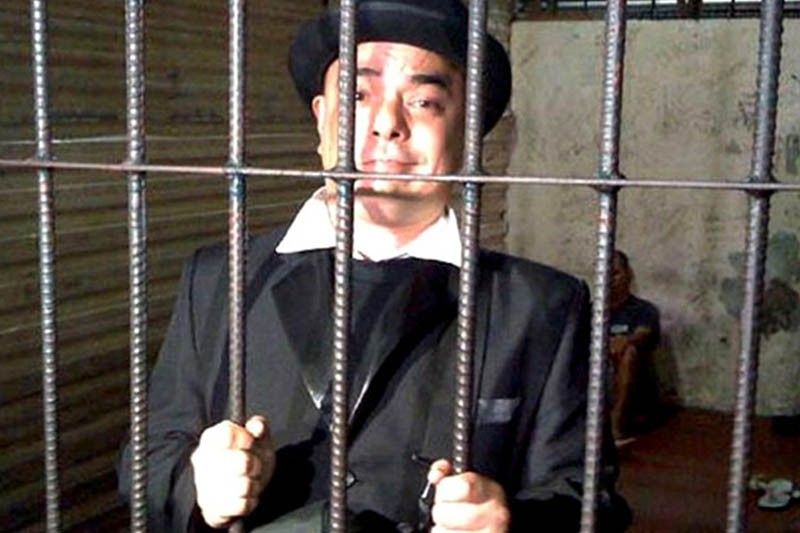Calida backs Celdran's appeal on SC case

MANILA, Philippines — The Office of the Solicitor General backed cultural activist Carlos Celdran’s stand that the provision of “offending the religious feelings” should be deemed unconstitutional.
Solicitor General Jose Calida filed an Omnibus Motion before the Supreme Court, urging it to “reconsider” the SC’s First Division resolution that upheld the guilty conviction against Celdran.
He also echoed Celdran’s stand that Article 133—which he was convicted of—should be declared as unconstitutional.
The case stemmed from Celdran’s protest in September 2010, when he dressed as Jose Rizal before then-Papal Nuncio, Gaudencio Rosales, several bishops and attendees of the ecumenical service. He held up a placard with the word “Damaso”—a reference to the villainous friar from Rizal’s novel, “Noli Me Tangere.”
The Manila Metropolitan Trial Court (MeTC) Branch 4 found Celdran guilty of violating Article 133 of the Revised Penal Code or “offending the religious feelings.”
Celdran elevated his case to the regional trial court and Court of Appeals, but he failed to get a favorable ruling.
‘CA overlooked facts’
Calida, in his 20-page motion, also pointed out that two other witnesses testified that they were not offended by Celdran’s “Damaso” protest.
“The Court of Appeals overlooked this established fact which, had it duly considered, would have resulted in the acquittal of Petitioner, there being reasonable doubt as to his guilt for the crime of offending religious feelings,” the solicitor general added.
The government’s chief legal counsel also pointed out that the prosecution failed to identify “a religious practice, dogma or ritual” that was ridiculed by Celdran’s act.
Article 133 provides that penalty shall be imposed “upon anyone who, in a place devoted to religious worship or during the celebration of any religious ceremony shall perform acts notoriously offensive to the feelings of the faithful.”
Calida urged the SC to look into the constitutionality of Article 133 and the questions of fact raised in the appeal. He stressed that the CA overlooked facts presented by the defense and its ruling was based on “pure conjectures” and findings “without citation of specific evidence.”
The SC’s First Division junked Celdran’s appeal for failing to “sufficiently show any reversible error in the uniform findings of the MeTC, the RTC and the CA.”
The SC also stressed that it is not a trier of fact.
“The Solicitor General maintains that Article 133 of the Revised Penal Code is unconstitutional, and that Petitioner should be acquitted—both on the basis of the inherent unconstitutionality of the legal provision under which he was criminally charged, as well as on the lack of factual basis to support his conviction,” Calida said.
Celdran appeal
Celdran on Wednesday filed an appeal on his case. He also urged the SC to take up his case in a full court session and hold an oral argument on it.
He said in his motion for reconsideration that the provision of the Revised Penal Code “restricts and regulates speech not only according to its content but also according to its viewpoint.”
He also took note that in 2016 the OSG—then under former Solicitor General Florin Hilbay—supported his arguments.
“The [OSG] essentially supports the arguments of the Petition. Hence, both the Petition for Review and the Manifestation in Lieu of Comment argue that Article 133 of the RPC is unconstitutional,” he said referring to the OSG manifestation filed in May 2016.
Celdran then asked the SC to hold oral arguments to “provide a venue for the further elucidation of the constitutional issues involved in this case.”
- Latest
- Trending






























